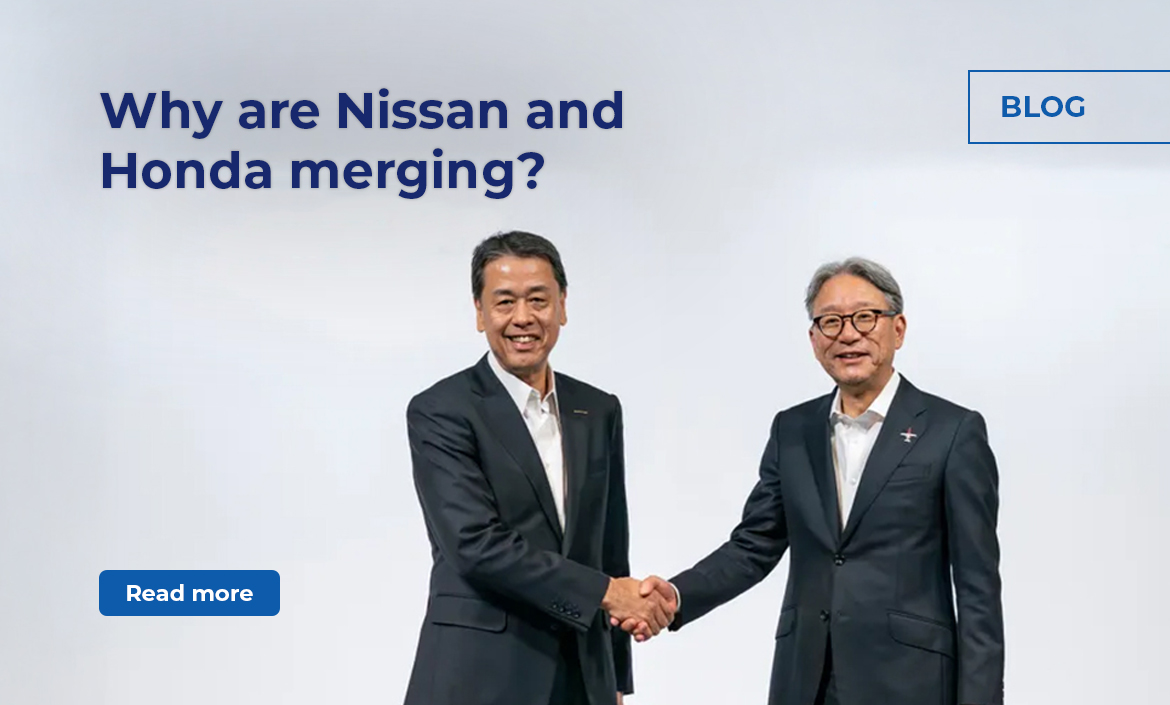In a substantial move that has surprised many, Nissan and Honda are exploring the idea of merging. This decision comes as both companies face stronger competition, especially from Chinese car manufacturers.
Nissan and Honda are working together to stay competitive in the fast-changing car market. This is especially true as electric vehicles (EVs) become more important and accessible. But why are they considering this merger?
The Growing Threat of Chinese Car Manufacturers
The industry is rapidly evolving. China is now the largest producer of electric vehicles in the world. Automotive brands from China, like BYD, are growing at an extortionate rate.
These companies can make cars at lower prices because they have lower labour and manufacturing costs. This makes it harder for traditional carmakers like Nissan and Honda to stay competitive, especially in the EV market.
To face this challenge, Nissan and Honda are thinking about merging. Honda’s CEO, Toshihiro Mibe, emphasised that China’s growing power in the car market is a large reason for this. He said that if Nissan and Honda don’t come up with a good plan by 2030, they could be left behind by these new competitors.
Strengthening Their Product Lines and Customer Base
Both brands have loyal customers and strong reputations. But each brand has its own strengths. Nissan are known for its innovative cars like the Leaf, one of the first affordable electric vehicles. Honda are famous for its reliable and fuel-efficient cars, especially in the sedan and compact car categories.
By merging, the Japanese giants look to combine their strengths. Together, they could offer a wider range of cars to more customers. For example, Honda’s reliable cars could be paired with Nissan’s advanced electric vehicle technologies. This would give customers more options and help both brands compete better in the changing car market.
One of the main reasons for the merger is the potential for economies of scale. This means that by working together, Nissan and Honda could reduce their costs.
When companies combine their operations, they can make more cars at a lower cost per car. This is important because both brands must stay competitive with Chinese carmakers. These manufacturers can sell cars for lower prices.
The merger would also help the two companies share resources. For example, they could share the costs of developing new electric vehicle technologies. By sharing their resources, Nissan and Honda can develop new technologies faster and compete at a lower price point.
Nissan’s CEO, Makoto Uchida, stated that the merger is not just to help Nissan’s finances. Instead, it aims to create better opportunities for both brands.
If the merger happens, Nissan could benefit from Honda’s strong presence in markets like North America and Asia. Both companies would also be able to combine their operations, helping them cut costs and work more efficiently.
What About Renault?
Nissan and Renault have been business partners for many years. Renault owns a large share of Nissan, and the two companies have worked together on many projects. However, if the merger with Honda goes ahead, Nissan may need to end or change its relationship with Renault. Renault has said that it is still considering its options and will think about what’s best for its business and shareholders.
A Strategic Move for the Future
The potential merger between Nissan and Honda is a smart move to help both companies survive and grow in a changing market. By combining their product lines and customer bases, Nissan and Honda can offer more cars to more people. They can also save money by sharing resources, which will help them compete against companies like those in China.
The industry is evolving, and Nissan and Honda are working hard to keep up. If the merger happens, it could help them stay competitive, especially in the growing electric vehicle market. All eyes will be on how this merger moves forward and what it means for the future of the automotive industry.
Get in touch for any of your fleet queries:
If your business needs any assistance, with setting fleet budgets, or would like to understand more about what vehicles fit into your fleet budget, get in touch today. Our experts can offer guidance regarding alternative fuel types and whole-life cost analysis.


